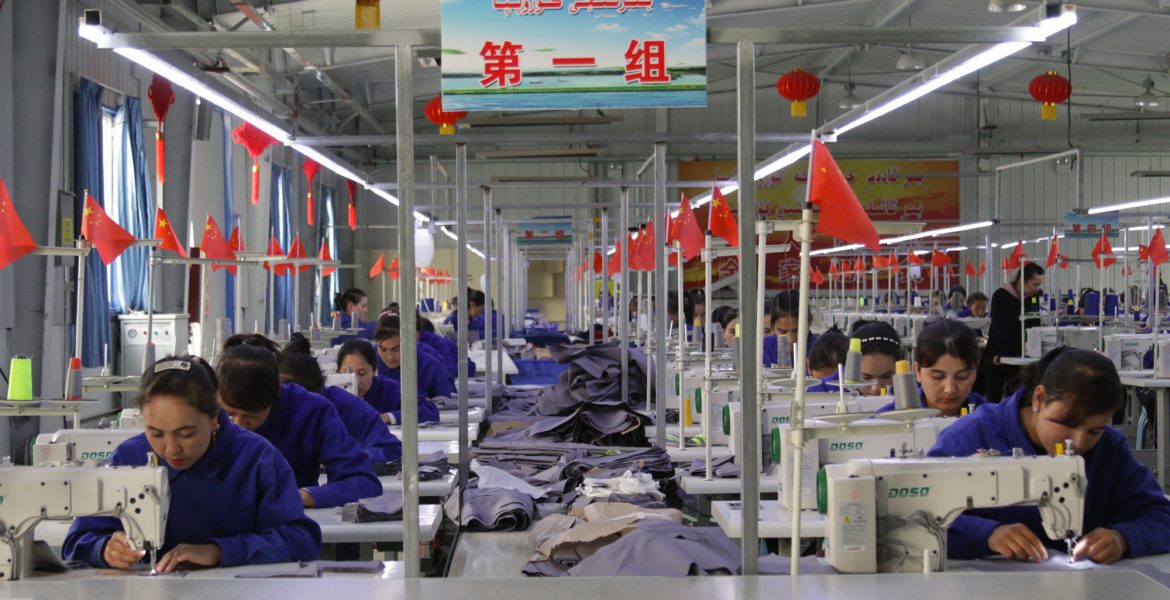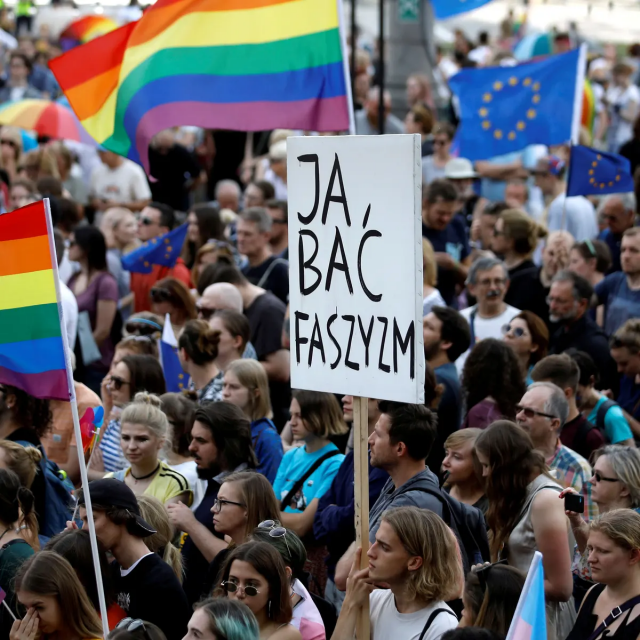A possible ban by the EU on goods from China which may have been produced or sourced from forced labour has been welcomed by a leading human rights group.
The ban is thought to being considered by the European Commission as a response to growing concern about alleged rights abuses in China.
Critics of the Beijing regime say those companies in Europe and elsewhere that do business with China should be penalised along with a ban on goods sourced from forced labour.
The issue has been pushed up the agenda of late by the disturbing plight of the Uyghur people in China who, it is alleged, face persecution by the Chinese authorities.
This and a possible ban on goods was the subject of a debate on Friday at Brussels press club.
Keynote speaker was Ben Rogers, founder of Hong Kong Watch, a non-governmental organisation based in the UK hat was established to monitor the conditions of human rights, freedoms and rule of law in Hong Kong.
Speaking via a link from London, he said, “This is an incredibly important topic and I warmly welcome the EU proposal on a possible goods ban. This is a very good start.”
“The U.S has already gone down this path to ban imports made by forced labour. I would urge the EU to do the same.”
“The plight of the Uyghurs is being recognised as genocide and crimes against humanity. This is being given serious consideration. But this genocide of the Uyghurs is not the only aspect of the current appalling human rights crisis in China.”
“We have seen what Beijing has done to Hong Kong, dismantling its freedoms and autonomy, plus there is Tibet and the persecution of Christians. China is an Orwellian state and that is why I support the EU proposal.”
Rogers also condemned the “shocking support for China from the majority of Muslim countries.”
He said, “On the question of the media, I would say coverage of this issue is not as good as it should be but, at the same time, the issue is much higher up the media agenda than it used to be.”
“Most informed people now know what this issue is about and there has been very good coverage on, for example, the BBC, including footage of Uyghurs being shipped off for forced labour. The Chinese ambassador to the UK was quizzed live on air about this.”
He added, “Yes, the media should do more to expose this but this coverage has been an important factor in bringing the issue further up the agenda than it was.”

“We live in a society where we want things as cheap and quick as possible but there is a growing awareness of the problem of slave labour. More and more people are becoming aware of this but maybe not quickly enough. We need to get information out there so people can make an informed choice and also diversify the sourcing of goods and components for consumer products and not relying so much on China.”
Benedict Rogers, Hong Kong Watch
Further comment came from another contributor, Chris White, a former national newspaper reporter in the UK, who said, “There is a general failure of politics around the world. Politicians intend to do the right thing but often it is not concluded. But I must admit that I don’t see the EU succeeding in this proposal on a goods ban because it will come up against fierce opposition.”
On the issue of media coverage of the Uyghurs, he said, “The media is not very good any more at explaining at what is going on there. If I went to China and broadcast critical information I’d end up in a bad situation and the situation in China is like it is in Russia. Democracy does not exist in these companies. We are not seeing the sort of follow up coverage that is needed such as which companies are doing business with China. That would allow the public to say I will not buy that product. That is where the failing is.”
White added, “I have a phone of which key parts were made in China but I have not seen any reports in the media about people not buying goods from China. The public is ill informed and I suspect corporate issues are at play here.”
Gary Cartwright, publisher of EUToday, which organised the debate, also criticised media coverage of the issue, saying, “This is one of the major human rights issues but the British media seem more interested in celebrity news.”
He cited a major IT company’s statement for the financial year 2021 which speaks about “cleaning up its act” regarding its supply chain.
He said, “Another letter to this company’s CEO from the Human Rights Commission in Geneva, despite what the company said about cleaning up its act, says the firm may be involved in the supply chain of goods originating from forced labour.I do believe the company is trying to clean up its act but the fact is we are not getting accurate information.”




